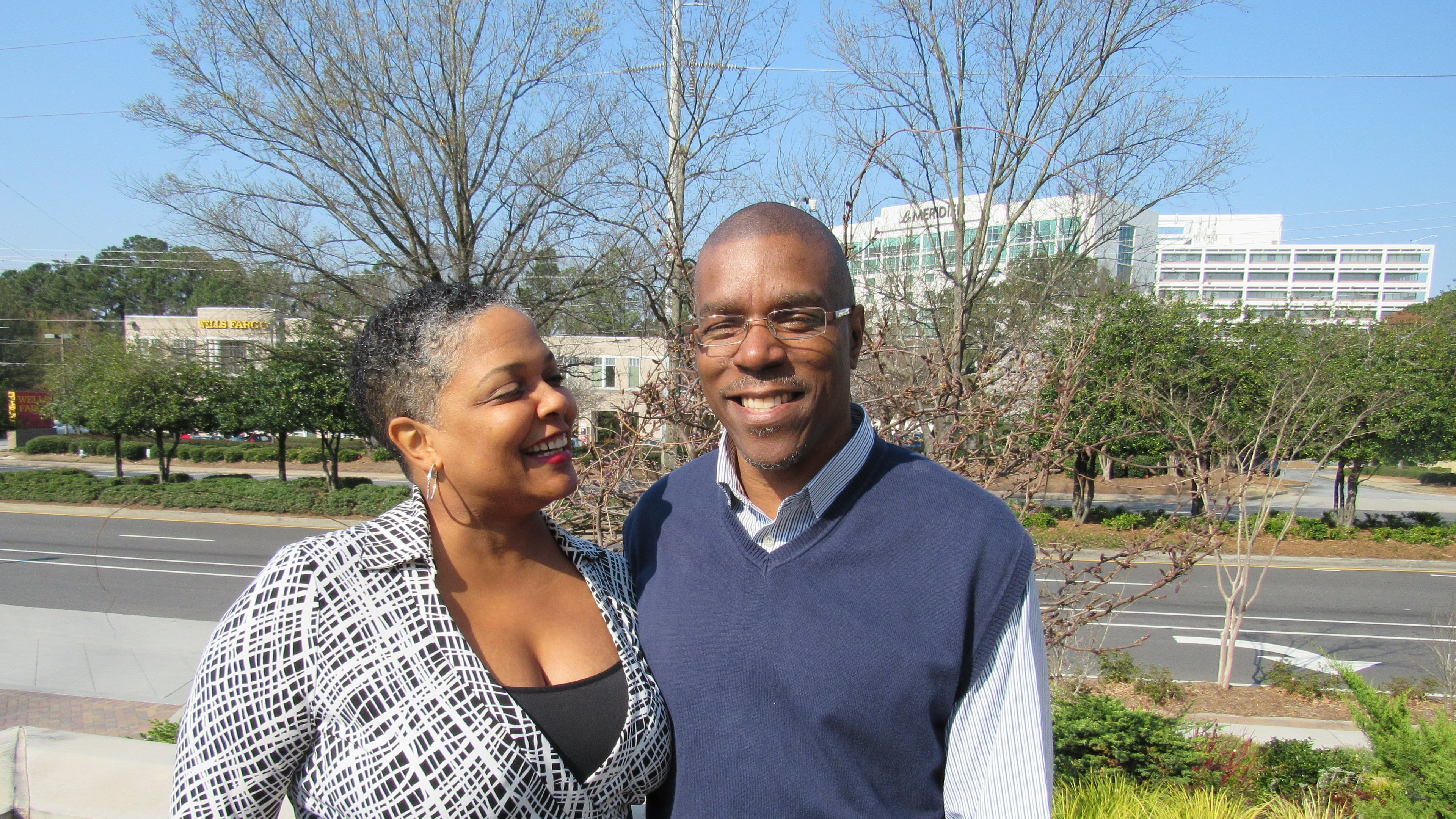“Hunger Games” actress’ bleak new film examines school shootings

A few minutes into a recent interview with actress Sharon Conley and her husband, actor/screenwriter/producer David M. Conley, a lady sitting nearby glanced over with interest.
"You look familiar," she told Sharon, who flashed her famous smile but demurred from ticking off her long list of film credits. So I did.
“She was in ‘Hunger Games!’ And ‘The Good Lie,’ ‘The Odd Life of Timothy Green,’ ‘What to Expect When You’re Expecting, ‘The Blind Side...,’” I said, naming Atlanta-filmed movies starring Reese Witherspoon, Jennifer Garner, Cameron Diaz and Sandra Bullock among others.
The original "Hunger Games," unlike the second, third and final installments, didn't film in Atlanta. The blockbuster based on dystopian novels about children forced to kill each other filmed in North Carolina, which is trending now for all the wrong reasons. A 22-year-old college dropout is in custody after two people were killed and others hurt in a shooting on the UNC-Charlotte campus.
Today's headlines and the recent interview with the Conleys have come together in a grim intersection. I'd met with them to discuss their latest project, a short film called "Father's Day." David Conley wrote and directed and he and Sharon both star. It tells the story of a horrific school shooting through the perspectives of all involved. (You can watch it here).
"I wanted to spark some understanding of mental health," said David Conley, a former military police officer who now runs leadership development sessions for first responders. His partner in that endeavor is his brother, a captain in the St. Louis, Mo. Fire Department.
The Conleys have a college-bound son, Jacob, who is graduating from Marist and wants to study theater. He also has a role in "Father's Day."
In considering the right time to write about the film (the upcoming holiday celebrating dads didn’t feel right, as there is nothing celebratory about it), a shooting on a college campus was the last possible news peg that came to mind. But here we are.
Here again are the thoughts and prayers and calls from opposing sides either for stricter gun control or greater freedom to carry weapons in self defense. Twitter is again full of harrowing real-time updates and heartbreaking reflections students posted during and after Tuesday’s ordeal.
Why here? Why today? Why UNC Charlotte? Why my classroom? What did we do?
— Tristan Field (@TristanField1) April 30, 2019
The Conleys didn’t have any particular school shooting in mind when working on “Father’s Day,” which filmed in Roswell. It was the cumulative effect of the many mass tragedies America endures with numbing regularity.
“You get bombarded,” David Conley said. “It’s understandable that first responders have PTSD.”
“There’s no debriefing,” Sharon Conley said. “People just go onto the next thing.”
Today’s next thing happened on a campus somewhat comparable to Kennesaw State University in terms of student body size and location. Like Kennesaw State, UNC-Charlotte is situated in close proximity to the highway (I-75 here, I-85 there).
Also like Kennesaw State, UNC-Charlotte began as a commuter school but has long since established a strong campus identity - so much so that #DroptheUNC has trended lately. It reflects the desire among many to rechristen the school as the University of Charlotte rather than seem like an appendage of the Tar Heel state’s flagship university in Chapel Hill.
A day after the shooting, exams are canceled at UNC-Charlotte. Instead, there’s a vigil. The campus community has become a family in mourning.
Students are sharing this memo for a candlelight vigil tomorrow night on campus across social media. #UNCC pic.twitter.com/X1Beq66qcM
— Bria Bell (@BriaBellTV) May 1, 2019
I'm from North Carolina and lived in Charlotte as a kid. I have covered mass shootings in Chattanooga, Orlando, Dallas, Las Vegas and here in Atlanta. Writing about them became an unfortunate specialty, and I talked about it when a Canadian public radio station aired a program on America's epidemic of gun violence.
I’ve also covered Georgia’s booming entertainment industry, which is how I got to know Sharon Conley years ago. She’s had recurring roles in “NCIS: New Orleans,” “Rectify” and “Drop Dead Diva” and has appeared in locally filmed “Greenleaf,” “Meet the Browns,” “Single Ladies and “Necessary Roughness.”
I didn't think covering entertainment and covering mass shootings would ever overlap, but here we are.
The Conleys, who previously worked on a film exploring PTSD among military personnel, hope to screen their new project as part of campus safety training or counseling initiatives.
“There’s a lot of stuff going on,” David Conley said. “I feel like there are a lot of people who are not being heard.”
I lived in Charlotte as a kid and stop overnight sometimes when I go up to see family in Raleigh. It’s a great town trending for all the wrong reasons tonight. #uncc pic.twitter.com/R0iGpuO8Vl
— Jennifer Brett (@Jennifer__Brett) May 1, 2019


